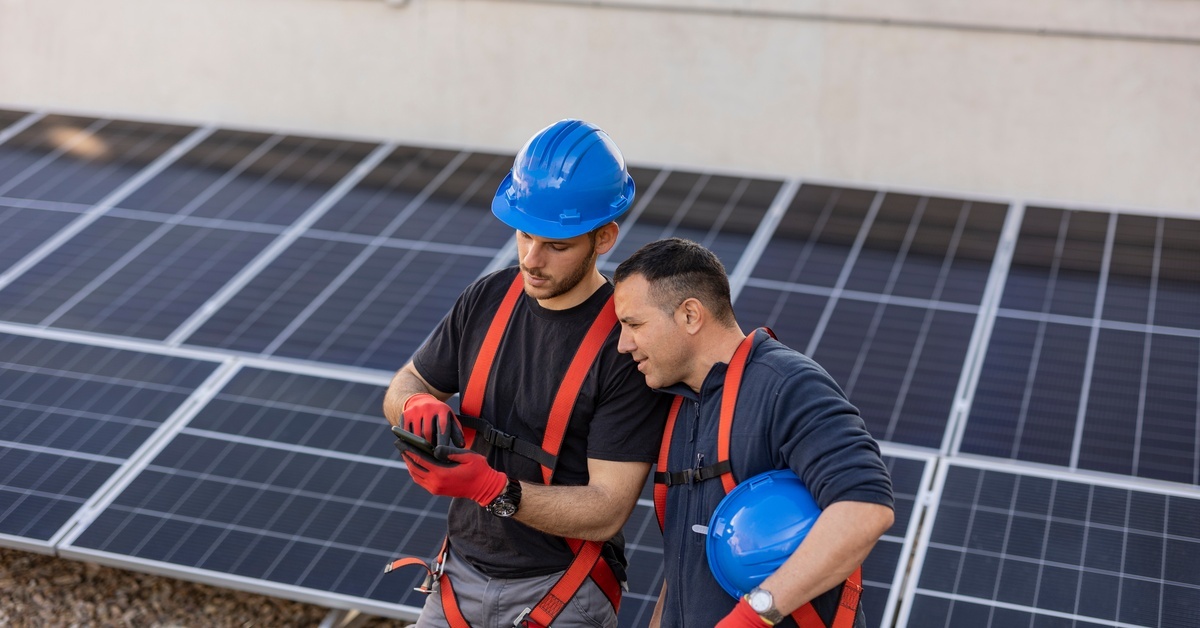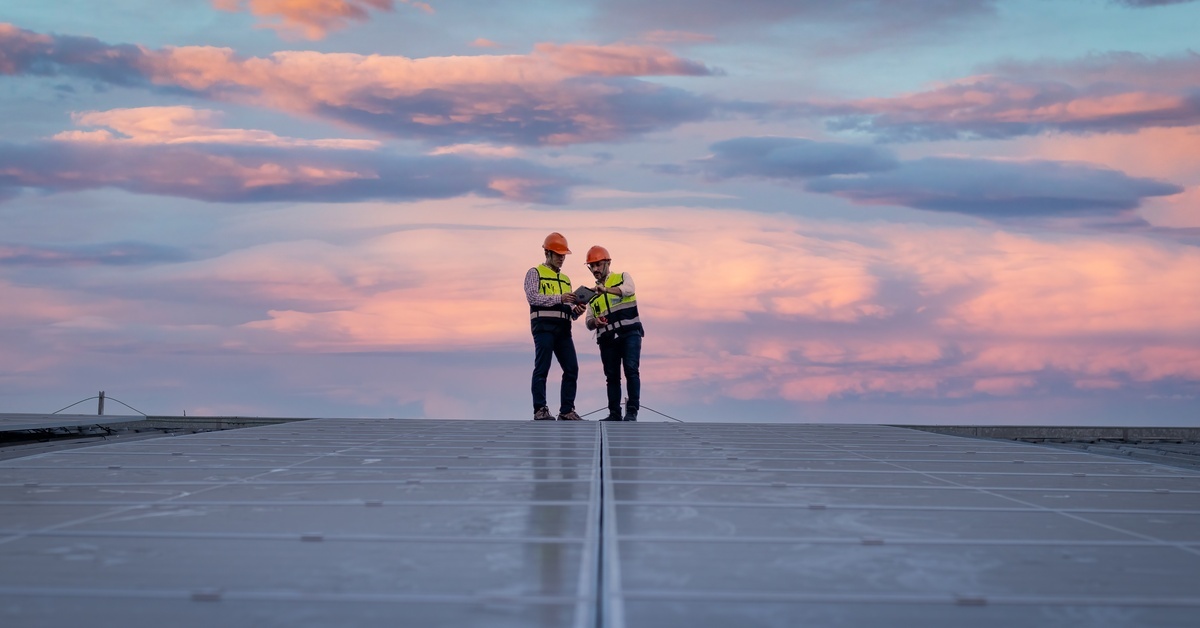May 13th 2025
Questions To Ask a Solar Installation Contractor
While business owners may understand that solar grids are excellent energy solutions, many nuances come with the installation process. Switching to solar energy is a great way to save on monthly costs and boost your company’s reputation, but certain businesses may benefit from personalized installations or additional resources.
During your initial consultation, ask your solar installation contractor these questions to understand the process and formalize the agreement.
What Certifications and Experience Do You Have?
Partnering with a qualified and experienced contractor will get you the results you’re looking for. To make sure your investment is in safe hands, verify your installer’s credentials and background information. Experienced contractors often maintain industry certifications that serve as proof of their training and expertise.
Licenses and Certifications
Ask your contractor whether they have certifications from reputable organizations such as NABCEP (North American Board of Certified Energy Practitioners). Additionally, confirm that they have the relevant state licenses and hold the authorization permits to install solar grids in your area. Working with these professionals protects your business from legal fines and guarantees that your installation will meet local safety standards.
Experience With Specific Installations
Depending on your region, energy performance, and available space, your business may need specialized installations. If you require assistance, ask your provider if they have experience handling installations for businesses like yours, and inquire about their most recent projects, successful case studies, or customer references. A professional with a wide range of experience will perform your installation diligently and with care.
What Is the Scope of Your Installation Services?

While many assume installation involves simply setting up solar panels, it actually encompasses a wide array of services. Each of these services can deeply impact the long-term efficiency and value of your solar energy system. Understanding each step of the process will help you determine what is necessary. Have your installer guide you through the setup and the permit approval process for full transparency.
System Design
Ask whether the contractor will handle the design phase of the project or if you will have to source these services from a different company. Proper system design includes creating a grid layout that optimizes sunlight while considering your site’s unique characteristics, like roof type, shading, and orientation. If you’re unsure of your system’s weak points, ask your solar installer for their professional advice to create an efficient layout for your grid.
Permits and Approvals
Confirm whether your contractor will take care of obtaining necessary permits and approvals from local authorities. Handling paperwork, including zoning permits or grid connection agreements, can be difficult to manage for business owners, so leaving it in expert hands simplifies things immensely.
What Solar Equipment Do You Use?
The quality of your solar energy system largely depends on the equipment used during installation. Asking about specific brands and models will give you a better understanding of what to expect in terms of performance and durability.
Panels and Efficiency
Ask the contractor what brands of panels they install and how their efficiency ratings compare. The efficiency of solar panels determines how much energy the system can convert from sunlight, which directly impacts your savings.
This is also a perfect opportunity to ask if your provider offers any deals on equipment or budget-friendly components. While these parts may not provide the same durability or strength as other high-quality components, these changes in materials could reduce your installation costs on a tight budget.
Warranties and Lifespan
As you select the best components for the installation, discuss warranties and the equipment’s expected lifespan. Panels typically last 25 to 30 years, so understanding the warranties for the product and the contractor’s work will help you plan long-term.
What Is the Total Cost?
The cost of solar installation varies depending on the project’s complexity. Discussing this with your contractor provides transparency and avoids unexpected expenses later in the process.
Itemized Costs
Request an itemized breakdown of costs for labor, equipment, permits, and any other associated expenses. This gives you a clear picture of where your budget is going and will allow you to plan accordingly. If there are any missing items or conflicting costs, notify your provider immediately to resolve these issues.
Payment Plans
The initial installation of a solar grid can be a costly expense, but many contractors distribute payment plans for new solar grid owners. If needed, inquire about payment options or financing plans they may offer. Some contractors work with financing partners to make transitioning to solar more affordable.
How Long Will the Installation Process Take?
Creating timelines catered to your business sets reasonable expectations and gives you flexibility when you need it. An informed timeline will prepare you for minimal disruptions and seamless integration of solar energy into your operations.
Ask your contractor for an estimated project timeline. This should include key milestones such as site inspection, permits, procurement of materials, and final installation.
Factors That Could Cause Delays
Consider potential barriers that may cost your project time, such as weather conditions, shipping delays, or permitting issues. Identifying these factors early allows you to anticipate and mitigate potential slowdowns. Also, confirm that your provider has a backup plan in case your timeline falls off schedule and that they’re available in case of unexpected circumstances.
Troubleshooting and Repairs
Ask what happens if a part of your solar grid malfunctions or gets damaged and how installation mishaps could affect the timeline. Most specialists will provide safety resources like solar placards for easy troubleshooting both during and after installation. Resolve any issues early in the process to prevent further delays due to component complications.
What Financial Incentives Can I Receive?

Switching to solar energy can offer numerous financial benefits, but navigating rebates and tax incentives may be overwhelming for new solar installers. If you have any questions, ask your solar installation contractor, so they can assist with these processes.
Federal and State Credits
Discuss whether your contractor can provide additional information regarding federal or state tax credits available for solar installations. Programs like the Federal Investment Tax Credit (ITC), for instance, offer a percentage of the installation cost back as a credit. Don’t miss out on these savings—verify with your installer if your business qualifies for these programs.
Subsidies and Local Programs
Similarly, explore whether there are local rebates, utility incentives, or accelerated depreciation programs your contractor can help you leverage to make your investment more cost-effective. Combining these local initiatives with federal earnings will benefit your company as you switch to solar power.
After the initial installation, scheduling routine maintenance will boost your system’s longevity. Keep in touch with your solar installers to see if they offer repair services in case your solar grid sustains damage. With a reputable partnership, your business will reap the benefits of solar for years to come.

